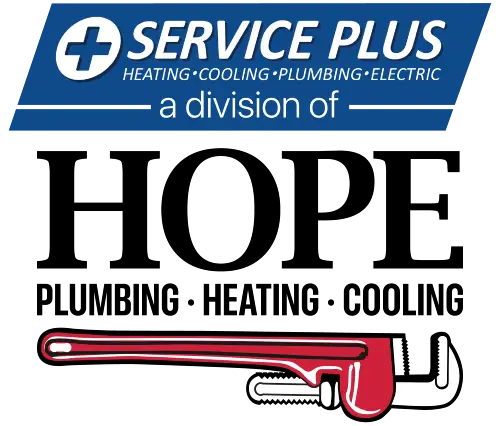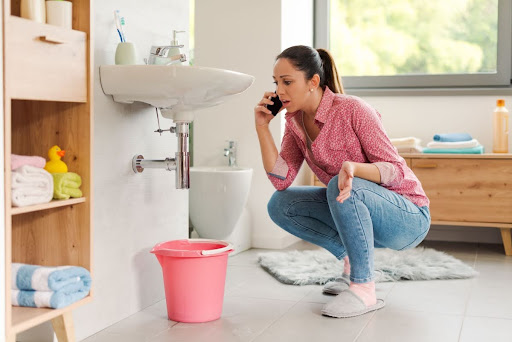Emergency. Just hearing the word can trigger a mix of emotions — urgency, stress, panic, or even confusion. When something goes wrong in your home, it’s easy to wonder, “Is this really an emergency, or can it wait?” Plumbing problems are a great example of this uncertainty. Some issues are minor and can wait a day or two, while others need to be addressed right away to avoid costly repairs, water damage, or even health hazards.
So, how do you know what counts as a plumbing emergency? Let’s break it down with clear explanations and examples, helping you feel more prepared the next time something goes wrong.
What Is Considered a Plumbing Emergency?
A plumbing emergency is a situation that requires immediate attention because it risks significant damage to your home, disrupts your daily routine, or poses a health or safety hazard. Ignoring a plumbing emergency can lead to further damage, higher repair costs, or even risks like water contamination or fire hazards.
By understanding what counts as a plumbing emergency, you can take the right steps to protect your home and family.
Common Plumbing Emergency Examples
Understanding what is considered a plumbing emergency can help you act quickly and reduce damage. Here are some of the most frequent examples that homeowners face — and why they’re so serious.
Burst Pipes
Few things cause as much instant damage as a burst pipe. When a pipe bursts, it can release gallons of water into your home, soaking floors, walls, and even electrical wiring. This is especially common during freezing temperatures, when water expands inside pipes, causing them to break.
If you’re dealing with a burst pipe, shut off your home’s main water supply immediately and call a plumber. The longer water is allowed to flow, the greater the damage — and the higher your water bill.
Overflowing Toilets
An overflowing toilet is one of the most common plumbing emergencies and can create serious health hazards. Contaminated water can damage floors, spread bacteria, and make parts of your home unsafe to use. If you’ve tried basic fixes like plunging and the water keeps rising, it’s time to bring in an emergency plumber.
To reduce damage while you wait, turn off the water supply to the toilet by using the valve near its base. This can prevent flooding from getting worse.
Clogged Drains or Toilets
A minor clog in a sink or toilet is often fixable with a plunger or drain cleaner, but when water stops flowing altogether, you’re likely dealing with a severe blockage. A completely clogged sink or clogged toilet can disrupt your household and even lead to sewage backup if the issue affects your main sewer line.
Professional tools and expertise are needed for these types of blockages. Ignoring the issue could result in even bigger problems for your plumbing system.
Leaking Gas or Smelling Gas
If you smell gas in your home, don’t ignore it — it’s a serious issue that could lead to an explosion or fire hazard. Gas leaks are often connected to appliances like stoves or water heaters, and they require immediate attention from both a plumber and your local gas company.
If you suspect a leaking gas issue, leave your home immediately, turn off the gas supply if possible, and call for help. Never try to fix a gas line on your own.
Sewage Backups
A sewage backup is not only unpleasant but also dangerous. When sewage begins to back up into sinks, tubs, or toilets, it introduces harmful bacteria and creates an unhealthy living environment. This type of emergency can also cause long-term damage to your home’s plumbing system.
If you notice a foul smell or see signs of sewage coming back into your home, make an emergency call right away. Waiting could cause the problem to spread, leading to more damage and expensive repairs.
Water Heater Failures
A failing water heater doesn’t just mean cold showers. It can also lead to leaking, flooding, or even burst pipes during colder months. If your water heater is leaking or not functioning, it’s necessary to address it quickly. Water heater failure can disrupt your household’s routine and may even cause further damage to your plumbing system if left untreated.
Major Leaks
Even a small leak can cause considerable damage if left unaddressed, so you can imagine how quickly a major leak or broken water line can spiral out of control. Major leaks can lead to water pooling in areas where it shouldn’t be, seeping into walls, floors, and ceilings. Over time, this can weaken the structural integrity of your home, promote mold growth, and damage your belongings.
Signs of a major leak include water stains on walls or ceilings, puddles forming indoors, or unusually high water bills. These leaks often stem from damaged pipes, a broken water line, or loose plumbing connections that have deteriorated over time. Our leak detection services in Indianapolis can help pinpoint the source of the issue quickly, but if you’re dealing with a major leak, don’t wait — call us ASAP for a solution.
What Counts as a Plumbing Emergency?
If you’re still wondering what counts as a plumbing emergency, here’s an easy way to decide: if delaying the repair could lead to more costly damage or unsafe conditions, it’s an emergency. For example:
- Water Damage: Pooling water, flooding, or leaking that can ruin floors, walls, or belongings.
- Safety Risks: Issues like leaking gas, sewage backups, or broken water lines that put your family at risk.
- Essential Services Interrupted: No access to clean water, severe clogs, or lack of hot water that disrupts daily life.
- Rapid Escalation: Problems like leaking pipes that worsen quickly and need immediate attention.
Why Call an Emergency Plumber Immediately?
When faced with a plumbing emergency, calling a professional for an emergency service is the safest way to handle the situation. An emergency plumber can quickly diagnose the problem and prevent it from causing further damage. For instance, when a sump pump fails during heavy rain, fast action can mean the difference between a dry basement and extensive water damage.
Delaying repairs often leads to more complex and costly fixes later. A trusted local plumber has the tools and expertise to address anything from damaged pipes to clogged drains, so you can get your home back to normal quickly.
Tips for Minimizing Damage During a Plumbing Emergency
There are steps you can take to minimize damage and keep your family safe:
- Turn Off the Water: Find your home’s main shut-off valve to stop water flow, especially during a burst pipe or major leak.
- Turn Off the Gas: In the case of a gas leak or if you smell gas, turn off the gas supply and evacuate immediately.
- Use Towels or Buckets: For minor leaks or drips, contain the water as much as possible to reduce damage.
- Contact a Professional Plumbing Company: If you need emergency plumbing services in Indianapolis, IN, reach out to our experienced company for help.
Call Our Emergency Plumbers in Indianapolis, IN, Today!
If you’re still wondering what is considered a plumbing emergency, the safest bet is to trust your gut. Plumbing emergencies can escalate quickly, so it’s better to act fast. At Service Plus, our team of expert emergency plumbers is here to help. Whether it’s a burst pipe, a sewer backup, or a failing sump pump, we’ve got the tools and experience to handle any plumbing issue.
When you need Indianapolis plumbing services, don’t hesitate. Contact us today to schedule an emergency call and get your home back to normal!
 Skip to content
Skip to content

